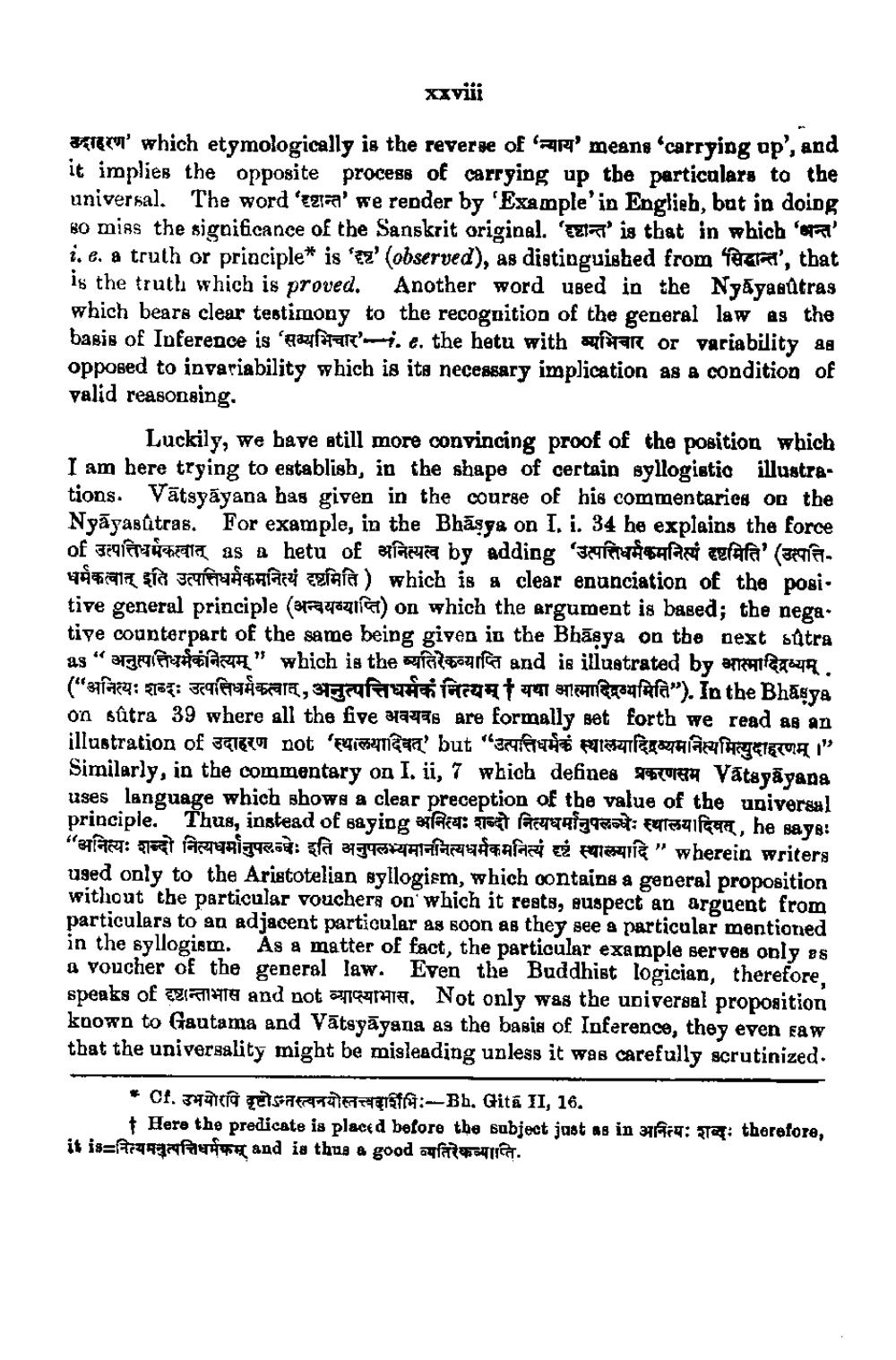________________
Xxviii
Ker' which etymologically is the reverse of all means 'carrying op', and it implies the opposite process of carrying up the particolars to the universal. The word 'Egiza we render by 'Example'in Englieh, but in doing so miss the significance of the Sanskrit original. 'la' is that in which 'espai i.e. a truth or principle* is 'ez' (observed), as distinguished from oural', that is the truth which is proved. Another word used in the Nyáyasútras which bears clear testimony to the recognition of the general law as the basis of Inference is 'paulatimi. e. the hetu with star or variability as opposed to invariability which is its necessary implication as a condition of valid reasonsing.
Luckily, we bave still more convincing proof of the position which I am here trying to establish, in the shape of certain syllogistio illustrations. Vātsyāyana has given in the course of his commentaries op the Nyāyasätras. For example, in the Bhāsga on I. i. 34 he explains the force of selittautait as a hetu of placa by adding 'segreteria Papi eelafa' (HIFT48917 sta STYTTÅSalazzi ezraia ) which is a clear enunciation of the posi. tive general principle (Bayaqla) on which the argument is based; the negatipe counterpart of the same being given in the Bhāsya on the next sutra as " अनुत्पत्तिधर्मकनित्यम्" which is the व्यतिरेकव्याप्ति and is illustrated by आस्मादिद्रव्यम् . ("311āze: 167: FENÊTTÅ 916, parfum forgat emme omfala"). In the Bhasya on sûtra 39 where all the five Hayes are formally set forth we read as an illustration of 3GI&Cu not 'Finantigat' but "zler Flat THÂN THIETIÆ " Similarly, in the commentary on I. ii, 7 which defines 401674 Vâtsyāyana uses language which shows a clear preception of the value of the universal
Thus, instead of saying अनित्यः शब्दो नित्यधमोनुपलब्धेः स्थालयादिवत् , he says: " T: 378€ lacunico: a 2194854fara afai i Fl " wherein writers used only to the Aristotelian syllogiem, which contains a general proposition without the particular vouchers on which it rests, puspect an arguent from particulars to an adjacent particular as soon as they see a particular mentioned in the syllogism. As a matter of fact, the particular example serves only as a voucher of the general law. Even the Buddhist logician, therefore, speaks of tz1976 and not agra. Not only was the universal proposition
own to Gautama and Vätsyāyana as the basis of Inference, they even faw that the universality might be misleading unless it was carefully scrutinized.
* Cf. Ja usaAFATES:-Bh, Gitá II, 16.
Here the predicate is placed before the subject just as in it is Arnarfarin and is thus a good aqfatter.
are: To: therefore,




